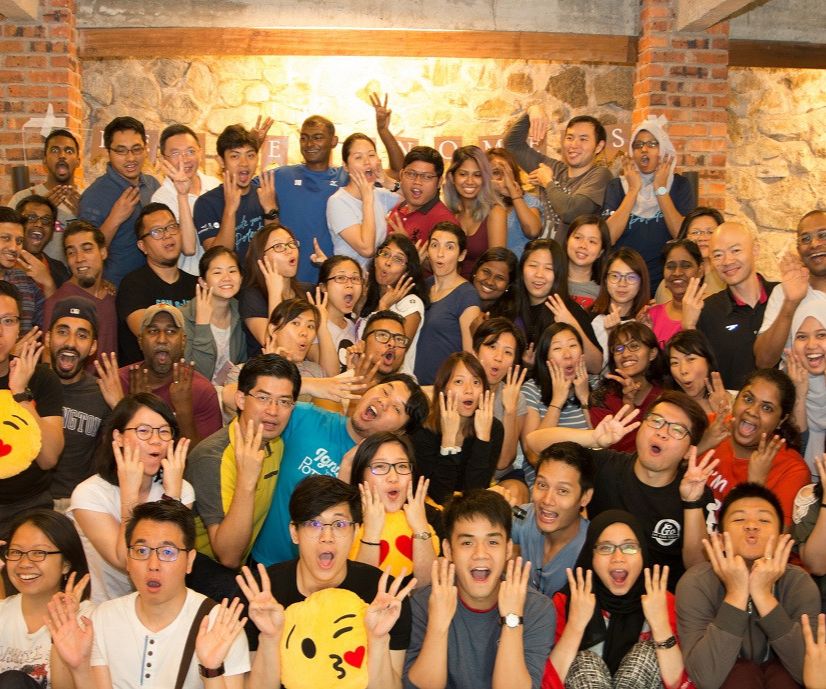Gazing Into The Crystal Ball: 2017, The Year Of Digital

It’s that time of the year again when experts pull out their crystal balls for a glimpse into what the year ahead holds. The Bersin Report by Deloitte predicts that everything in human resources (HR) and learning will become digital in 2017, and we at KNOLSKAPE agree.
As the use and significance of technology increases in our lives and business, and with information far more readily available now than ever before, the needs and demands of the modern learner have dramatically changed.
In short, the way in which we learn is being disrupted. Hence, it has never been more imperative than now for organisations to develop their talent strategy in a way that accommodates the tectonic changes ushered in by shifts in technology, customer expectations, hyper-competition and expectations of a new-age workforce.
Related post: Knolskape: Why Digital Will Change The Way We Learn Forever
In the last two decades alone, half of the Fortune 500 companies in the world have disappeared due to their inability to adapt themselves to the digital age. It has only been in the last 5–7 years that organisations have ventured to accepting and adopting digital technologies, and focusing on building digital capabilities.
Despite the commotion that technology has created in the way we live, work and conduct business, it is only the beginning of technological disruption in the HR and learning and development (L&D) space. Organisations will require to pick up their pace to a full throttle, simply to stay relevant.
The focus for HR and talent professionals in 2017 will largely centre on using digital and experiential technologies to assess and develop leadership and digital capabilities of employees across levels, in a personalised and contextualised environment.
Organisations that recognise the criticality of scaling up their workforce to meet business demands, while meeting the learning demands of their employees will focus on three broad areas as part of their talent strategy:
1. Digital technologies
According to a study by Microsoft Corporation, the modern learner has an attention span shorter than a goldfish, getting distracted once every eight seconds by their mobile phones or other technology integral to their daily lives.
For an organisation to design and deliver robust learning or engagement experiences to its workforce, leveraging on these technologies is an urgent requirement.
In this regard, technologies such as artificial intelligence, machine learning, mobile learning and virtual reality will gain immense traction in the development of behavioural competencies because they not only keep the learner actively engaged, they provide scalable frameworks for practice and feedback, effectively bridging the gap between learning and performance.
2. Digital and leadership capabilities
Between an immensely diverse workforce, the increasing reliance on technology to conduct business, and the rapidly changing business environment, leaders must manage two crucial challenges:
- Creating a culture that is transparent, inspiring, meaningful and engaging for their employees through open channels of communication, continuous feedback and coaching and skill development to retain and develop their talent, and build a robust leadership pipeline.
- Investing in building digital awareness and readiness across levels as design thinking, agility and data driven decision-making will become foundational competencies for organisations.
3. Personalised learning and engagement
The way in which the modern learner consumes information has also drastically transformed. Learners today look for untethered and collaborative learning opportunities that allow them to decide when and how they want to consume information.
With high quality curated content available freely on the internet, L&D professionals will only be able to assert their relevance by contextualising learning and engagement to the specific requirement of the target group.
This might interest you: How Organisations Can Make Learning A Habit
Bringing it all together
KNOLSKAPE’s Top 10 talent transformation trends for 2017 include:
- Digital capabilities will be in sharp focus.
- Learning will become intensely learner-centric.
- AI systems will aid development of behavioural competencies.
- Explosion of MOOCs (massive open online courses) and video content coupled with machine learning will lead to personalisation of learning.
- Leader as a coach will emerge as a key leadership development imperative.
- Accelerated leadership development meets exponential growth.
- Virtual assessment centres will become mainstream.
- Employee engagement will continue to be a big issue facing HR.
- Bite-sized mobile learning will gain traction.
- Classroom will be used for facilitated practice.
What the Leaderonomics.com team says
We have seen a great interest in the digital space ourselves as it’s also the year of Internet economy for Malaysia, announced by the Prime Minister late last year. From the number of enquiries we are getting on leveraging the digital space for brand awareness, employer branding and learning, we are now forced to accelerate our learning to equip ourselves in digital and leadership capabilities.
Datuk Yasmin Mahmood, chief executive officer of Malaysia Digital Economy Corporation (MDEC), forecasted that the country needs one million digital workers (coders, application developers and software engineers) by 2025. How prepared are we today and in the years to come?
Upcoming Malaysian and regional digital enterprises are jumping into the bandwagon to leverage SMAC (social, mobile, analytics and cloud) technologies to optimise the cost of corporate functions and to transform enterprise collaboration for greater productivity.
As Leaderonomics.com is also exploring the many possibilities to support learning, development, talent and leadership at individual and organisational level, we are looking for a dedicated digital-savvy techie person/innovator (with IT competencies and a great attitude) who can help bring Leaderonomics.com and its digital assets strategically to greater heights.
If you have what it takes, why not share your digital experiences and how you can further advance Leaderonomics.com at people@leaderonomics.com.
KNOLSKAPE is a tech organisation focused on building applications for learning. All of their products and services are offered via Leaderonomics Learning. To explore their services contact info@leaderonomics.com. For more Thought Of The Week articles, click here.
Reposted with permission on Leaderonomics.com.
Functional
This article is published by the editors of Leaderonomics.com with the consent of the guest author.





